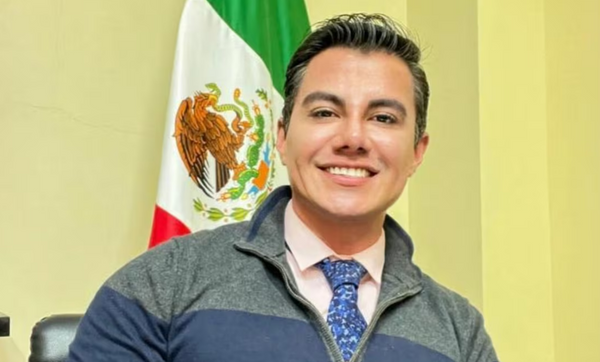For Ellen Langer, the meaning of "mindfulness" crystalized after her home burned down.
The so-called godmother of mindfulness and the first woman to ever be tenured in psychology at Harvard University says she never felt stressed by the blaze that took her home nearly 30 years ago.
Perhaps that's because it's not the fire that destroyed her home in Cambridge, Mass., that she remembers most about that day. It's what happened next. Along with her two dogs, she took up temporary residence at a nearby hotel in Cambridge. Since most of her things were destroyed in the fire, she kept very little stuff in her hotel room. So she was shocked one day when she walked into her room only to be greeted by an array of gifts that hotel service workers — including the room maid — had purchased for her.
"I don't remember a thing I lost in the fire," she says. "But I do remember the basic goodness of people. The present is always more important than the past."
If that instinct is not a sign of great leadership, what is?
Be The Guru In Your Field Like Ellen Langer
Langer, 77, is to mindfulness what Colonel Sanders is to fried chicken. She has written a dozen books, five of which focus on mindfulness, including her bestseller, "Mindfulness," and her newest book, "The Mindful Body: Thinking Our Way to Chronic Health." She runs the Langer Lab, which conducts research on health, happiness, decision-making, education, business and culture — all through the lens of mindfulness.
Langer has also earned three distinguished science awards: the Staats Award for leadership, a Guggenheim Fellowship, and the Liberty Science Genius Award, widely regarded as one of the highest honors given to people who have made exceptional contributions to science and technology.
Don't forget that there's often a waiting list to get into her class at Harvard, which is focused on how mindfulness can improve health and happiness and lower stress levels.
Langer is the guru of de-stressing. For corporate executives who suffer angst while making big decisions, she has one word of advice: Stop.
"Don't stress over making decisions big or small," she said. "It's better to make a random decision."
Be Mindful
Instead, she says, great leaders need to be mindful. In other words, she says it's all about being in the present and fully aware of how things are always changing and look different from different perspectives.
"To be a great leader is to realize that uncertainty is the rule, not the exception," she said.
When a leader is mindful, they are typically seen by others as being authentic and charismatic — which are important ingredients for great leaders, she says.
The very best leaders at the very best workplaces should never have to bribe employees — with food or games — to stay longer at work, she says. For example, Alphabet's Google initially garnered lots of attention when it installed pingpong tables, daylong freebie food offerings and other rewards to encourage employees to stay in the office.
"The implication is, you need a break from work," she said. But if employees are mindfully working, she notes, they shouldn't necessarily need or want a break because when you are truly doing something mindfully, the work should always be interesting and fun.
Langer Says: Know Your Imperfections
Not that mindful leaders are all perfect. Most mindful leaders are also recognized as being trusting to the point of gullible, she says. She's OK with that, she says, because if you work for someone who isn't trusting, that typically leads to poorer performance.
Langer, who joined the Harvard faculty in 1977, earned her Ph.D. at Yale University in social and clinical psychology. She has been studying mindfulness for almost 50 years.
"Aside from Buddha," she jests, "I was the first to make the concept available."
Few know that better than Philip Maymin, associate professor of analytics and AI at Fairfield University's Charles F. Dolan School of Business, who has worked hand-in-hand with Langer on mindfulness research. He was in a lab with her when a co-worker made a joke about the lab that cracked up the entire group.
Langer laughed, too, but was mindful enough to take it an important step further, he says. She thought about the joke, then extracted a nugget of wisdom from it that ultimately led to a new research experiment. "She took an off-the-cuff remark and found something more there. I remember the feeling of awe we all had at the time," Maymin said.
Find Your Passion
Maymin's daughter was in Langer's class last semester at Harvard. She says that Langer not only creates instant buzz in the classroom, but that when Langer walks into the classroom, students can feel the mood instantly lift. Langer is so enthusiastic about her work that she typically starts teaching the moment she walks into the classroom — which is often five minutes before the class's official start time.
Talk about being in the moment.
Langer offers this advice for others who want to practice on being more mindful: Mix it up.
For example, the next time you brush your teeth, notice three new things about the process. Maybe you can really examine the bristles on your toothbrush for the first time. Maybe try squeezing the toothpaste onto the brush with your left hand instead of your right hand. And instead of starting the brushing process on the top of your mouth, start on the bottom. Each of these actions helps to make you more mindful and put you in the present.
"You can even make flossing fun," she said. "Before you start, predict which parts of your mouth will be holding the most junk, then see if you're right."
Stay Curious Like Langer
Langer isn't certain where her fascination with mindfulness comes from. But she vividly remembers that as a child, whenever she'd approach her parents with a problem that she couldn't solve they would regularly encourage her to look it in a totally different way.
Our minds, she says, are more powerful than just about anything.
Right before the Covid pandemic, she says, she was supposed to go to China to do a scientific study on 500 people who had recently been diagnosed with some form of cancer. She was going to try to measure the stress levels of all of the patients every three weeks over time. She strongly believes that the experiment would have demonstrated that stress — or lack of it — determines much more than we believe.
"I believe that the level of stress will predict the course of the disease over genetics, nutrition and even treatment," she said. "Our minds are our most powerful medicine."
That, for example, is why she believes hospitals need to be redesigned to reflect a sense of calm — not urgency. "I don't know anyone who has ever walked into a hospital and isn't immediately stressed," she said.
The same holds true for schoolrooms and for office buildings, she says.
Turn Misfortune Into Good Fortune
Mindfulness, she says, is also learning to make lemonade out of lemons.
If you're right-handed and break your right hand, that can seem like one heck of a setback. But you can look at it another way, too. It gives you the opportunity to start using your left hand more. "That's not such a terrible thing when it forces you to use your right brain, too," she said.
It's no surprise that businesses approach Langer for advice on how to encourage employees to be more mindful. But even when she declines the requests, she often offers them some sort of personalized advice anyway and reminds them that mindfulness isn't really that difficult, says Maymin. "Instead of a long, tedious, boring process, she says, 'Heck, you can change people today,'" said Maymin. "You can make people mindful instantly. The whole point is to have fun."
Practice Mindfulness
Mindfulness is empowering, says Langer. "People mistake my confidence for arrogance," she said. "Once you realize that whatever you're doing can be seen as positive or negative, you're free to do whatever you want."
That's mindfulness in action.
In the end, she says, there are rarely right or wrong decisions. "Rather than waste time struggling to make right decisions," she said, "just make the decision — right away."
Langer's Keys
- The so-called godmother of mindfulness and first woman to ever be tenured in psychology at Harvard University.
- Overcame: Her home in Cambridge, Mass., burned down 30 years ago.
- Lesson: "I believe that the level of stress will predict the course of the disease over genetics, nutrition and even treatment. Our minds are our most powerful medicine."







